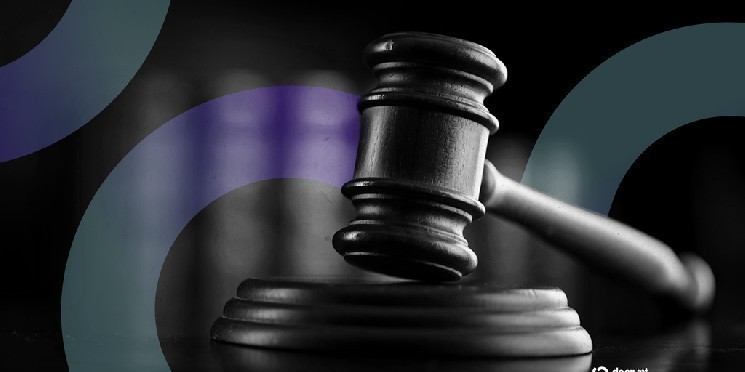South Korean Actress Receives Suspended Sentence for $3 Million Crypto Embezzlement
High-Profile Entertainment Figure Avoids Jail Time in Landmark Financial Case
In a dramatic conclusion to a closely-watched legal battle, renowned South Korean actress Hwang Jung-eum left Jeju District Court visibly emotional on Thursday after receiving a two-year suspended prison sentence for embezzling approximately $3 million from her own agency to invest in cryptocurrency. The case has drawn significant attention across both entertainment and financial sectors, highlighting the increasing intersection between celebrity wealth management and digital asset investments in South Korea’s evolving regulatory landscape.
The court delivered the suspended sentence under Korea’s Act on the Aggravated Punishment of Specific Economic Crimes, according to reporting from Korea JoongAng Daily. This ruling means Hwang will avoid incarceration unless she commits another offense within the next four years. The judgment represents a significant reprieve for the actress, as prosecutors had initially pursued a three-year jail term when the case reached its climax in August. Court officials cited several mitigating factors in their decision, including Hwang’s status as a first-time offender and her complete repayment of the embezzled funds prior to sentencing.
Details of the Embezzlement Scheme Reveal Complex Financial Maneuvering
According to court documents and indictment details, Hwang diverted approximately 4.34 billion won ($3.1 million) from her entertainment agency in early 2022. Investigation records reveal that the bulk of these funds—roughly 4.2 billion won—was channeled directly into cryptocurrency investments, while the remaining amount was allocated toward personal expenses including property taxes and credit card payments. This financial misconduct occurred despite South Korea’s increasingly stringent oversight of both entertainment industry accounting practices and cryptocurrency transactions.
The case is particularly notable for its unusual circumstances, as the “agency” in question was actually a family-operated corporation solely owned by Hwang herself, with the actress serving as both owner and sole talent under management. During her initial court appearance on May 15, Hwang admitted to all charges brought against her and requested additional time to complete restitution. Court records indicate she subsequently sold personal assets to repay the embezzled amount in multiple installments, returning approximately 3 billion won by her first trial date and completing the remaining payments in two transactions on May 30 and June 5.
Convergence of Entertainment Industry and Cryptocurrency Regulation
The Hwang Jung-eum case illustrates the evolving regulatory approaches toward cryptocurrency-related financial crimes across different regions. Kadan Stadelmann, Chief Technology Officer at blockchain platform Komodo, observed to Decrypt that East Asian and Western regulators are increasingly demonstrating “similar outcomes when it comes to enforcing the law against crypto embezzlers,” despite historical differences in their regulatory frameworks. While Western jurisdictions have traditionally maintained an advantage in “blockchain analytics” capabilities, Stadelmann noted that Asian regulatory bodies are rapidly “catching up” in their technological sophistication and enforcement mechanisms.
Stadelmann suggested that South Korean authorities might benefit from examining U.S. financial control models, where the Federal Trade Commission enforces “transparency, disclosure, and accountability” standards for celebrity cryptocurrency promotions. These established guidelines could potentially inform the development of more comprehensive oversight frameworks for talent agencies and entertainment corporations in South Korea, particularly as digital assets become increasingly integrated into traditional financial portfolios of high-net-worth individuals in the entertainment industry.
Legal Defense Strategy Highlights Regulatory Gray Areas
During court proceedings, Hwang’s legal team presented a nuanced defense that revealed potential regulatory ambiguities surrounding cryptocurrency holdings in South Korea’s corporate environment. Her attorneys argued that the misappropriated funds originated from Hwang’s personal entertainment earnings and were temporarily held in her individual name because South Korean corporations face restrictions on directly holding cryptocurrency assets. “Since the agency’s profits ultimately stem from the defendant’s own work, they can be seen as rightfully belonging to her,” Hwang’s attorney asserted during final arguments.
This defense strategy highlighted the complex relationship between personal and corporate finances in entertainment industry structures, particularly in cases where the line between individual and company assets becomes blurred in single-talent agencies. Despite these arguments, the court maintained that the financial transfers constituted embezzlement under existing statutes, though the complete restitution and Hwang’s evident remorse significantly influenced the sentencing decision. During her final hearing on August 21, the actress expressed profound regret, stating: “I was just trying to work hard and live honestly, but I neglected financial and tax matters, which led to this situation. I am remorseful.”
Implications for Celebrity Financial Management and Cryptocurrency Governance
The Hwang Jung-eum case represents a significant precedent in South Korea’s approach to celebrity financial misconduct involving cryptocurrency investments. As digital assets continue gaining popularity among high-net-worth individuals in the entertainment industry, this ruling signals that regulatory authorities remain vigilant against financial improprieties regardless of an individual’s public profile or the ultimate ownership structure of the funds in question.
Financial experts note that this case may prompt entertainment agencies throughout South Korea to implement more rigorous financial controls and compliance procedures, particularly regarding cryptocurrency investments. The outcome also demonstrates the South Korean judicial system’s willingness to consider restitution and first-time offender status as significant mitigating factors in economic crime cases. For Hwang Jung-eum, the suspended sentence represents both a legal reprieve and a public reminder of the increasing scrutiny facing celebrity financial management in an era where traditional entertainment industry structures increasingly intersect with emerging digital asset classes. As she departed the courtroom in tears, the actress faced not only personal consequences but also symbolized the broader challenges of navigating financial compliance in South Korea’s evolving regulatory landscape.














